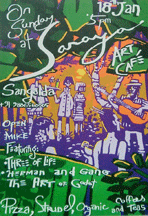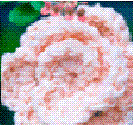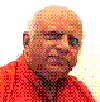Christian writers of the first and second centuries who are known, or are considered, to have had personal relations with some of the Apostles, or to have been so influenced by them that their writings may be held as echoes of genuine Apostolic teaching. Though restricted by some to those who were actually disciples of the Apostles, the term applies by extension to certain writers who were previously believed to have been such, and virtually embraces all the remains of primitive Christian literature antedating the great apologies of the second century, and forming the link of tradition that binds these latter writings to those of the New Testament.
The name was apparently unknown in Christian literature before the end of the seventeenth century. The term Apostolic, however, was commonly used to qualify Churches, persons, writings, etc. from the early second century, when St. Ignatius, in the exordium of his Epistle to the Trallians, saluted their Church "after the Apostolic manner." In 1672 Jean Baptiste Cotelier (Cotelerius) published his "SS. Patrum qui temporibus apostolicis floruerunt opera", which title was abbreviated to "Bibliotheca Patrum Apostolicorum" by L. J. Ittig in his edition (Leipzig, 1699) of the same writings. Since then the term has been universally used.
The list of Fathers included under this title has varied, literary criticism having removed some who were formerly considered as second-century writers, while the publication (Constantinople, 1883) of the Didache has added one to the list. Chief in importance are the three first-century Bishops: St. Clement of Rome, St. Ignatius of Antioch, and St. Polycarp of Smyrna, of whose intimate personal relations with the Apostles there is no doubt. Clement, Bishop of Rome and third successor of St. Peter in the Papacy, "had seen the blessed Apostles [Peter and Paul] and had been conversant with them" (Irenaeus, Adv. Haer., III, iii, 3). Ignatius was the second successor of St. Peter in the See of Antioch (Eusebius, Church History III.36) and during his life in that centre of Christian activity may have met with others of the Apostolic band. An accepted tradition, substantiated by the similarity of Ignatius's thought with the ideas of the Johannine writings, declares him a disciple of St. John. Polycarp was "instructed by Apostles" (Irenaeus, op. cit., III, iii, 4) and had been a disciple of St. John (Eusebius, op. cit., III, 36; V, 20) whose contemporary he was for nearly twenty years.
Besides these, whose rank as Apostolic Fathers in the strictest sense is undisputed, there are two first-century writers whose place with them is generally conceded: the author of the Didache and the author of the "Epistle of Barnabas". The former affirms that his teaching is that of the Apostles, and his work, perhaps the earliest extant piece of uninspired Christian literature, gives colour to his claim; the latter, even if he be not the Apostle and companion of St. Paul, is held by many to have written during the last decade of the first century, and may have come under direct Apostolic influence, though his Epistle does not clearly suggest it.
Some of the Fathers
St. Iraenaeus He was born in Proconsular Asia, or at least in some province bordering thereon, in the first half of the second century; the exact date is controverted, between the years 115 and 125, according to some, or, according to others, between 130 and 142.
Eusebius of Cæsarea b. about 260; d. before 341
St. Jerome Born at Stridon, a town on the confines of Dalmatia and Pannonia, about the year 340-2; died at Bethlehem, 30 September, 420.
St. Basil the Great Born probably 329; died 1 January, 379
St. Cyprian of Carthage c. 246
St. John Chrysostom Doctor of the Church, born at Antioch, c. 347; died at Commana in Pontus, 14 September, 407.
Ecclesiastical writer in the second and third centuries, b. probably
about 160 at Carthage
Fathers of the Church
- The Appeal to the Fathers
- Classification of Patristic Writings
- Characteristics of Patristic Writings
- Patristic Study
The Didache
A short treatise which was accounted by some of the Fathers as next to Holy Scripture. It was rediscovered in 1873 by Bryennios, Greek Orthodox metropolitan of Nicomedia, in the codex from which, in 1875, he had published the full text of the Epistles of St. Clement. The title in the manuscript is Didache kyriou dia ton dodeka apostolon ethesin, but before this it gives the heading Didache ton dodeka apostolon. The old Latin translation of cc. i-v, found by Dr. J. Schlecht in 1900, has the longer title, omitting "twelve", and has a rubric De doctrinâ Apostolorum. For convenience the contents may be divided into three parts: the first is the "Two Ways", the Way of Life and the Way of Death; the second part is a rituale dealing with baptism, fasting, and Holy Communion; the third speaks of the ministry. Doctrinal teaching is presupposed, and none is imparted.
Father, the word and meaning
The word Father is used in the New Testament to mean a teacher of spiritual things, by whose means the soul of man is born again into the likeness of Christ: "For if you have ten thousand instructors in Christ, yet not many fathers. For in Christ Jesus, by the gospel, I have begotten you. Wherefore I beseech you, be ye followers of me, as I also am of Christ" (1 Corinthians 4:15, 16; cf. Galatians 4:19). The first teachers of Christianity seem to be collectively spoken of as "the Fathers" (2 Peter 3:4).
Thus St. Irenæus defines that a teacher is a father, and a disciple is a son (iv, 41,2), and so says Clement of Alexandria (Stromata I.1.1). A bishop is emphatically a "father in Christ", both because it was he, in early times, who baptized all his flock, and because he is the chief teacher of his church. But he is also regarded by the early Fathers, such as Hegesippus, Irenaeus, and Tertullian as the recipient of the tradition of his predecessors in the see, and consequently as the witness and representative of the faith of his Church before Catholicity and the world. Hence the expression "the Fathers" comes naturally to be applied to the holy bishops of a preceding age, whether of the last generation or further back, since they are the parents at whose knee the Church of today was taught her belief. It is also applicable in an eminent way to bishops sitting in council, "the Fathers of Nicaea", "the Fathers of Trent". Thus Fathers have learnt from Fathers, and in the last resort from the Apostles, who are sometimes called Fathers in this sense: "They are your Fathers", says St. Leo, of the Princes of the Apostles, speaking to the Romans; St. Hilary of Arles calls them sancti patres; Clement of Alexandria says that his teachers, from Greece, Ionia, Coele-Syria, Egypt, the Orient, Assyria, Palestine, respectively, had handed on to him the tradition of blessed teaching from Peter, and James, and John, and Paul, receiving it "as son from father".
| < Prev | Next > |
|---|
















